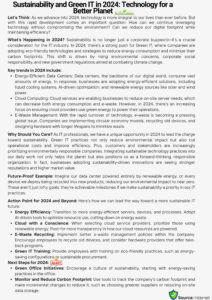
Introduction:
Sustainable investing, once considered a niche approach, has emerged as a powerful force reshaping the global financial landscape. Investors are increasingly recognizing the importance of considering environmental, social, and governance (ESG) factors alongside financial returns when making investment decisions. In this comprehensive guide, we’ll explore the growing trend of sustainable investing, its impact on financial markets worldwide, and the potential benefits it offers for investors, businesses, and society as a whole.
1. The Rise of Sustainable Investing:
Sustainable investing, also known as socially responsible investing (SRI) or environmental, social, and governance (ESG) investing, has gained momentum in recent years as investors seek to align their investment portfolios with their values and principles. This approach goes beyond traditional financial metrics to consider factors such as environmental impact, social responsibility, and corporate governance practices.
2. Driving Forces Behind Sustainable Investing:
Several factors are driving the growth of sustainable investing, including changing consumer preferences, regulatory developments, and increasing awareness of environmental and social issues. Millennials and younger generations, in particular, are driving demand for sustainable investment options, as they prioritize companies that demonstrate a commitment to sustainability and social responsibility.
3. Implications for Businesses and Financial Institutions:
The rise of sustainable investing has significant implications for businesses and financial institutions. Companies that prioritize ESG factors are perceived as more resilient, ethical, and well-managed, leading to enhanced reputation and brand loyalty. Moreover, integrating sustainability into business practices can drive innovation, reduce operational costs, and mitigate risks associated with environmental and social issues.
Financial institutions, including asset managers, banks, and pension funds, are also embracing sustainable investing principles to meet the evolving needs and preferences of their clients. This shift is driving the development of new financial products and investment strategies that incorporate ESG considerations into the investment decision-making process.
4. Benefits of Sustainable Investing:
Sustainable investing offers a range of potential benefits for investors, businesses, and society as a whole. From a financial perspective, companies with strong ESG performance have been shown to outperform their peers over the long term, suggesting that integrating sustainability into investment strategies can lead to enhanced returns and reduced risk.
Moreover, sustainable investing can drive positive social and environmental outcomes by directing capital towards companies that are making a positive impact on society and the planet. By investing in renewable energy, sustainable agriculture, and social enterprises, investors can contribute to the transition to a more sustainable and equitable world.
5. Challenges and Opportunities Ahead:
While the growth of sustainable investing is promising, there are challenges that need to be addressed to realize its full potential. These include the lack of standardized ESG metrics, data quality issues, and the need for greater transparency and disclosure from companies.
However, these challenges also present opportunities for innovation and collaboration within the financial industry. Initiatives such as the Task Force on Climate-related Financial Disclosures (TCFD) and the Sustainability Accounting Standards Board (SASB) are working to develop standardized reporting frameworks and metrics that will enable investors to better assess and compare companies’ ESG performance.
Conclusion:
In conclusion, sustainable investing is driving positive change in financial markets worldwide, reshaping the way investors allocate capital and businesses operate. By considering environmental, social, and governance factors alongside financial returns, investors can drive positive social and environmental outcomes while potentially enhancing long-term financial returns.
As the momentum behind sustainable investing continues to grow, businesses and financial institutions must embrace sustainability as a core principle and integrate ESG considerations into their investment strategies and decision-making processes. By doing so, they can not only drive profitability and shareholder value but also contribute to a more sustainable and equitable future for generations to come.






